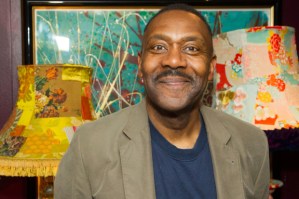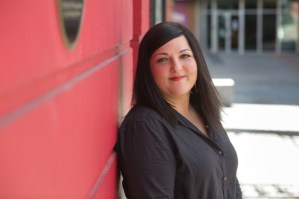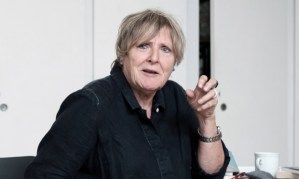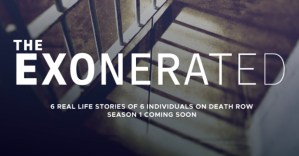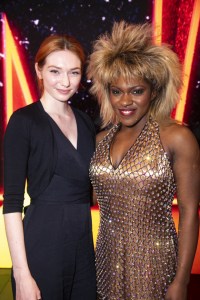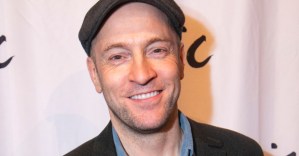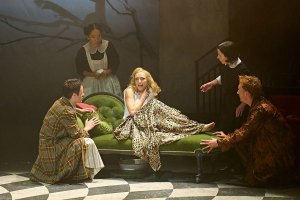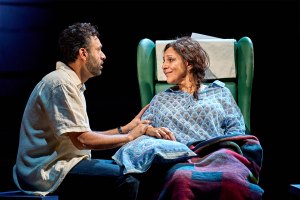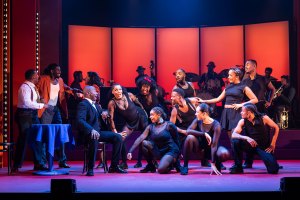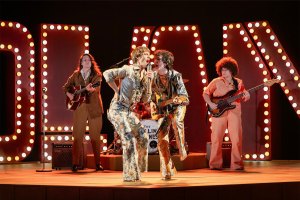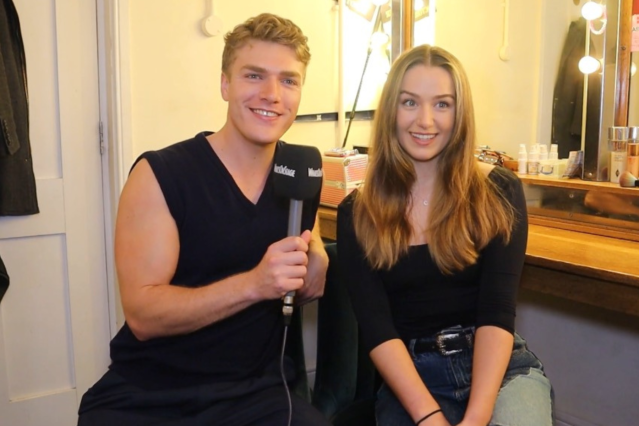Review: Noughts and Crosses (Theatre Royal Stratford East)
Malorie Blackman’s young adult novel is adapted for the stage by Sabrina Mahfouz
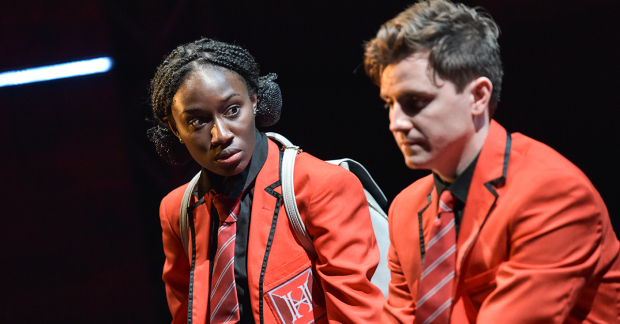
© Robert Day
High quality theatre aimed specifically at adults and late teenagers is hardly abundant. Sabrina Mahfouz's mostly excellent adaptation of Malorie Blackman's 2004 novel is therefore a welcome addition to a somewhat undernourished canon.
Set in a not-too-distant future, Blackman's story imagines an alternative world where black people (the Crosses) have all the wealth, privilege and power, actively and with impunity discriminating against the poverty-stricken white people (the Noughts); it's a world where elitism, state-sanctioned intimidation and capital punishment are the norm, yet on the surface it looks similar to our own, with kids on their cellphones sloping about in hoodies and baggy trousers, and where rebellion is starting to foment in the cowed underclass.
At the centre of the tale is a burgeoning but tempestuous love between super-rich Sephy (short for Persephone), a Cross (beautifully portrayed by Heather Agyepong), and intelligent, sensitive poor boy Callum (Billy Harris, absolutely wonderful), a Nought. The inevitable parallels, at least initially, with Romeo and Juliet become extremely apparent when the story is converted from page to stage. What reads as a compulsive page turner satisfyingly transforms into a consistently watchable theatrical experience that may occasionally feel over-long and melodramatic, but is seldom less than gripping.
The first venture by a consortium of Pilot Theatre Company, Derby Theatre, the Coventry Belgrade, York Theatre Royal and Colchester's Mercury Theatre to create shows for younger audiences, Esther Richardson's imaginative, fast-moving multimedia production is exactly the kind of thing that is likely capture the hearts and minds of a stage neophyte forever. It's seldom subtle and some of the dialogue is a bit stilted, but the overall impression is of a great, relatable story well told. It isn't afraid to wear its heart on its sleeve, and pulls no punches with portraying some of the nastier and/or political elements of the tale.
Adapter Mahfouz and director Richardson receive sterling support from a bold, accomplished technical production: from Simon Kenny's simple but vivid scenic evocation of the soulless world the play is set in to Joshua Drualus Pharo's thrilling lighting, and Arun Ghosh and Xana's doomy, haunting soundscape, the whole production has a compelling nightmarish quality that almost deflects attention from the fact that the first act is overlong while the second half succumbs to a tendency to tell rather than show. However, it pulls itself back together quite magnificently in the last couple of scenes which are profoundly affecting and, if you haven't read the book, a brutal shock.
Watching the sunshine drain out of Harris' open-faced, gently humorous protagonist, a life of dwindling opportunities gnawing away at him, is very powerful, and if the rest of the acting isn't up to that standard, all the performers impressively commit to the strenuous physical demands of Richardson's stylised staging. Doreene Blackstock and Lisa Howard register particularly strongly as contrasting mothers from either side of the social divide.
Despite a couple of flaws, this is ambitious, thought-provoking stuff, tackling important themes – race relations, class divide, how terrorism comes about, breakdown of family – with intelligence and theatrical flair. It could end up being instrumental in nurturing theatre audiences and practitioners of the future and thus deserves a longer life after this current tour.





